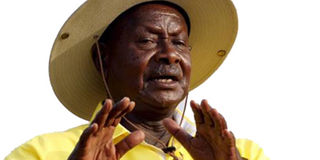President must issue policies, not handouts

President Museveni. FILE PHOTO
What you need to know:
- The issue: Govt handouts
- Our view: The poor do not need such handouts. They need commitment on the part of government to fight corruption and formulate policies that will spur economic growth.
On Sunday President Museveni, in the name of helping beneficiaries fight poverty, handed out cash and other goodies worth more than Shs5 billion to 110 groups in Rukungiri District.
The Rukungiri handouts, like the ones doled out in Kampala and Busoga before, suggest that Mr Museveni has added donations to the list of poverty alleviation programmes like Bonna bagagawale (Prosperity for All), Poverty Eradication Action Plan (PEAP), Plan for the Modernisation of Agriculture (PMA), the Youth Fund and a host of others, which the government has implemented over the years.
While we do not doubt Mr Museveni’s good intentions, we with all due respect, think that this approach does not work. It is not only cultivating a culture of dependency in sections of the populace, but it also raises questions of equity and inclusiveness or the lack of it.
What criteria did Mr Museveni use to identify the groups in Rukungiri as the most deserving of such help? If figures from the Uganda National Household Survey (UNHS) 2016/17 report, which was released by the Uganda Bureau of Statistics (UBOS) in September 2017 are anything to go by, Rukungiri is not among the 30 districts most afflicted by poverty.
The report indicates that the worst hit are districts in Karamoja, Bukedi and Busoga sub-regions. The income poor population of Karamoja was 61 per cent, 48 per cent in Bukedi and 42 per cent in Busoga. Would it come as a surprise if those from the three regions felt “excluded” and hard done by?
However, most important of all, the handouts amount to treatment of the symptoms and not the disease. Our poor have the same aspirations as those of the more fortunate nationals.
They too would like to have access to good quality education, a functional healthcare system, running water and electricity in their homes and a fair chance for their children to get access to jobs and other economic opportunities. Their challenge is how to wriggle their way around the things that deny them access.
They are failing to extricate themselves from poverty because of corruption, which makes delivery of quality services in areas like health and education practically impossible. It also impedes the enactment of pro-people policies that would help stimulate the economy.
The poor do not need such handouts. They need commitment on the part of government, to fight corruption and formulate policies that will spur economic growth. That is where Mr Museveni’s energy should be expended.




